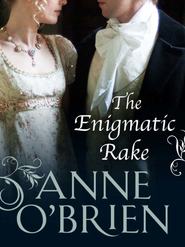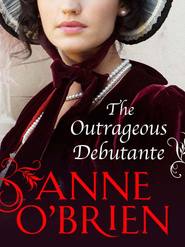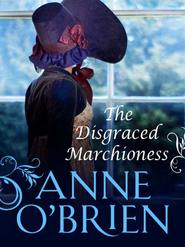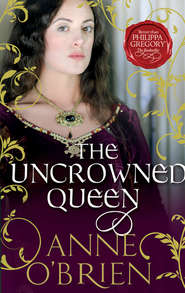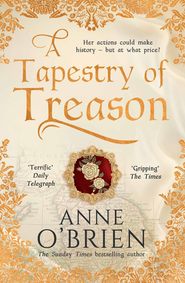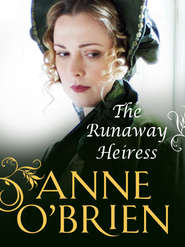По всем вопросам обращайтесь на: info@litportal.ru
(©) 2003-2025.
✖
Regency High Society Vol 6: The Enigmatic Rake / The Lord And The Mystery Lady / The Wagering Widow / An Unconventional Widow
Настройки чтения
Размер шрифта
Высота строк
Поля
Regency High Society Vol 6: The Enigmatic Rake / The Lord And The Mystery Lady / The Wagering Widow / An Unconventional Widow
Anne O'Brien
Diane Gaston
Georgina Devon
Includes: The Enigmatic RakeMiss Sarah Russell, newly appointed housekeeper, knows little of her new employer, apart from his rakish reputation! Lord Joshua Sherbourne Faringdon’s proposal of marriage takes her by surprise – and leads her to wonder: just what are this intriguing man’s secrets?Includes: The Lord and the Mystery LadyReturning from war, Sir Hugo Fitzsimmon is stunned to find a lady working on his estate. If Annabell remains under his roof her reputation will be torn to shreds. Curiously, the fiercely independent widow seems immune to Society’s opinion. But she isn’t immune to Hugo’s touch….
Regency
HIGH – SOCIETY AFFAIRS
The Enigmatic Rake Anne O’Brien
The Lord and the Mystery Lady Georgina Devon
The Wagering Widow Diane Gaston
An Unconventional Widow Georgina Devon
www.millsandboon.co.uk (http://www.millsandboon.co.uk)
The Enigmatic Rake
Anne O’Brien
About the Author
ANNE O’BRIEN was born and has lived for most of her life in Yorkshire. There she taught history before deciding to fulfil a lifetime ambition to write romantic historical fiction. She won a number of short story competitions until published for the first time by Mills & Boon. As well as writing, she finds time to enjoy gardening, cooking and watercolour painting. She now lives with her husband in an eighteenth-century cottage in the depths of the Welsh Marches. You can find out about Anne’s books and more at her website: www.anneobrien.co.uk
Chapter One
Autumn 1819—Paris
This wing of the vast house was silent, the windows and the rooms behind them unlit with curtains securely drawn, the garden beyond dark and shadowed. Sounds of distant merriment drifted on the mild air, of music, laughter, the hum of a large gathering, but here there was nothing to disturb the midnight stillness. With its towers and turrets, gravelled drive and formal gardens, it was a formidable château on the very edge of Paris, the home of the Comte and Comtesse de Charleroi, where a celebration was being hosted for the forthcoming marriage of the heir. An event of notable interest and comment to the blue and noble blood of the Parisian beau monde. But here on a stone-flagged terrace of the west wing, overlooking a rigidly ornamental parterre, the felicitous event played no part in anyone’s mind.
The terrace was not as deserted as it might first appear. A dark figure merged into the inky shadow of the house where the twisted stem of a wisteria hugged, then overhung the wall to give protection. Beyond the fact that it was a man, tall and broad-shouldered, a solid outline, no other detail could be ascertained. Dark clothes allowed him to blend with the background and he was careful to keep the pale skin of hands and face from attracting any stray glimmer from a fitful moon. He wished to be neither seen nor identified. He was waiting. Un-moving, breathing silent and shallow. Waiting.
At last a noise. A careless scrape of a footstep on stone. Two figures emerged as darker shapes against the dark surround—one from the corner of the wing of the château, the other on the short rise of steps that led up from the garden to the terrace. An assignation, carefully planned. The hidden watcher tensed, but otherwise remained motionless.
There was nothing of moment in either figure, both as sombrely dressed as the one who waited and watched. They met at the top of the steps. A low-voiced conversation—brief and hurried—took place and something changed hands from both sides. Perhaps a letter and a flat packet. Then one turned and vanished once more into the garden, the black density of a yew hedge soon swallowing him and any possibility of footsteps. The whole scene took less than two minutes. The other made no move to return to the house, but stood in full sight, moonlit, against the terrace’s carved balustrade, head lifted as if in anticipation. Or perhaps he too was listening.
The watcher, after a brief moment to assess the quality of the stillness that was once again total, stepped out from concealment to advance cat-like with grace across the terrace. The man turned. This meeting, it would appear, was also not unexpected.
‘Well, monsieur?’ The watcher spoke in soft, low tones.
‘I have what you require, my lord.’ Hardly more than a whisper.
‘The list of names?’
‘Yes, my lord.’ The gentleman took from his pocket the letter that had only a moment before come into his possession. ‘Will you keep the agreement? That my name and identity be deleted from any further investigation into this delicate matter?’
‘Of course.’ Teeth glinted in the dark in a hard and particularly cynical smile. ‘I will keep my word, you may be sure.’ The watcher inclined his head in a gesture of some irony as he took a bulky package from his pocket.
‘Would you sneer, my lord?’ The gentleman, still holding the letter, breathed in with some hauteur. ‘Your involvement is not beyond criticism. Blackmail, for whatever purpose, leaves a particularly unpleasant taste in the mouth.’
‘True.’ The smile again. The glint of an eye. ‘But then—I do not sell the names of my compatriots to the enemy for money, knowing that it could mean their death, for a mere few thousand francs.’
The gentleman turned his face away, perhaps embarrassed by the justice of the accusation, then surprised his companion when he laughed softly.
‘As it happens, neither do I, my lord.’
There was absolutely no warning. No sound, no movement of air. Merely a deeper shadow within shadows, which advanced noiselessly from the shelter of an artistically clipped shrub in a marble urn. Before the watcher could react, a heavy blow was dealt to the side of his head from the butt of a pistol, almost robbing him of his senses. He groaned on a sharp intake of breath, automatically raising his hands in defence. But before he could gather his wits to respond to protect himself further, he found himself forced back against the stone balustrade by a pair of strong hands and the force of a well-muscled body. Next moment he had lost his balance, thrust by a wide shoulder and hard-driven thigh against and over the stonework. His fingers scrabbled to find some purchase in the lichened carvings, but he was falling, helplessly, to land heavily and ignominiously into the clipped box edges and fragrant plants of the garden some considerable distance below.
After which all consciousness and all knowledge left him.
In the fashionable quarter of Paris, some days later, in the home of the British Ambassador Sir Charles Stuart and away from the sumptuous reception rooms where visiting dignitaries were entertained and suitably overwhelmed, there was a small anteroom usually set aside for informal or private transactions. This particular interview was to be conducted not by the Ambassador, but by a gentleman who made it his business to remain unknown and unrecognised except by a very few. For the head of British espionage it was good policy to remain anonymous, particularly when it was hoped to discover the names of British politicians attempting to undermine British foreign policy, such as those who would find it politic to bring about the downfall of King Louis XVIII of France and the restored Bourbons. Politicians who might even go so far as to plot the restoration of the deposed Emperor Napoleon Bonaparte—if that ailing exile, imprisoned on the distant island of St Helena, lived long enough to see the day.
There was nothing about the gentleman to draw any attention. Indeed, he worked hard to achieve exactly that, being addressed in his public life as Mr Wycliffe. Neat, slight of figure, no longer young and with a quiet demeanour, he sat behind a desk with a document in his hand, a deep frown between his brows, as the door opened. He looked up, the frown growing heavier at the interruption, then rose to his feet with a quick smile as he saw the identity of his visitor.
‘My Lord Faringdon! Come in, my dear man. I had not expected to see you so soon. Come in and take the weight off your feet.’
The gentleman entered slowly, without grace: Lord Joshua Sherbourne Faringdon.
Those closely acquainted with the family would have given the opinion that Lord Joshua was typical of the Faringdon mould. Above average height with dark hair, although prematurely silvered to a gleaming and stunning pewter, and with the fine, distinctive features of all the men of the family. The straight nose and dark brows, the dramatically carved cheekbones and seductive mouth, the aura of power and self-will were all instantly recognisable. Under different circumstances he was acknowledged to be both elegant and graceful. Well-defined muscles would have rippled beneath the expensive cloth of his fashionable garments. But on this occasion as he walked forward into the room it could be seen that he was in considerable discomfort. His exquisitely tailored coat fit more closely than might have been usual, with evidence of heavy padding around chest and one shoulder. Furthermore he walked with a heavy limp, making use of an ebony cane, which was not merely for affectation. He lowered himself to a chair as invited with a grimace and a distinct lack of co-ordination, lips tightly pressed into a thin line.
‘How are you, sir? We have been concerned.’ Wycliffe resumed his seat behind the desk, eyes narrowed on his visitor.
‘I have been better.’ Lord Faringdon abandoned his cane on the floor beside him and eased his shoulders with noticeable effort.
‘I had not expected you to have left your bed. There was no need. We had been informed of—and accepted—your present inability to continue your mission.’
‘Perhaps you see no need, but since you would not come to me, sir, of necessity I must come here.’ The tone was not conciliatory. Wycliffe found himself pinned by a hard stare from predatory eyes, more austere grey than friendly blue. ‘I need to know your intent.’
Not willing to be cornered into any revealing or sensitive disclosures, Wycliffe deflected the demand. He had spent a lifetime in doing such. ‘There is time and enough for that. Joshua… ‘ he lapsed into a more intimate form of address, hoping to placate, although his words were not guaranteed to achieve that end ‘… you could have been killed.’
‘I am aware. It has crossed my mind to wonder why I was not. I could not have defended myself, and one dead English spy must have its attractions to those who would work against us.’ Lord Faringdon stretched out his right leg, easing torn ligaments of thigh and knee. ‘And although it shames me to admit it, I must consider that I was very neatly set up. I had no notion that I too was watched and my cover undermined.’
‘Hmm.’ Wycliffe steepled his fingers, elbows resting on the desk, to cast a shrewd glance over one of his most able, if most unlikely, employees. It would never do to underestimate the powers of comprehension of Joshua Faringdon. In the circumstances he owed him some degree of honesty. ‘It would seem that the Bonapartists have more skill—and certainly more determination—than perhaps we gave them credit for. They had no intention of handing over the names of those who would work to restore Napoleon and they also escaped with the money that you agreed to exchange for the list. You will not be surprised to learn that Monsieur Blanc—such an obvious name!— ‘ his lips curled in distaste ‘—who lured you to the Charleroi château, has disappeared from all his known haunts in the city.’
‘Very sensible of him.’ His lordship winced as he shifted his bruised and battered body in the exceedingly uncomfortable straight-backed chair. ‘I have a debt to pay there! But as I said before—where do we go from here?’
Wycliffe pursed his lips. There was no point in skirting the issue. ‘The problem is, my lord, that your role and your cover here in Paris may have been compromised, although to what extent we cannot yet guess. Perhaps it would be wise for you to remove yourself from the scene in the short term. It may be that you can no longer pose—as you have done with considerable success—as the careless and unprincipled libertine visiting Paris with an eye merely to his own interests and pleasures.’
‘No. I agree.’ Lord Joshua thought for a moment. ‘I still wonder why they did not kill me when they had the chance.’ He rubbed a hand over his face, returning to this one aspect of the night’s débâcle as if it had been keeping him awake at night, along with the physical pain, a memento of crashing from the terrace into the shrubbery. ‘Someone had sufficient affection for me not to wish to hear of my being discovered as a rotting corpse in a garden. So who do you suppose it was who broke my cover?’
Wycliffe pressed his lips into a thin line of distaste. ‘As to that, I could not guess. We have no traitors in our camp. Our security is second to none.’
‘Marianne?’ His lordship’s voice was soft, dangerously so. ‘Our security was appallingly suspect when dealing with that lady. You may have conveniently forgotten the details. But I cannot.’
Anne O'Brien
Diane Gaston
Georgina Devon
Includes: The Enigmatic RakeMiss Sarah Russell, newly appointed housekeeper, knows little of her new employer, apart from his rakish reputation! Lord Joshua Sherbourne Faringdon’s proposal of marriage takes her by surprise – and leads her to wonder: just what are this intriguing man’s secrets?Includes: The Lord and the Mystery LadyReturning from war, Sir Hugo Fitzsimmon is stunned to find a lady working on his estate. If Annabell remains under his roof her reputation will be torn to shreds. Curiously, the fiercely independent widow seems immune to Society’s opinion. But she isn’t immune to Hugo’s touch….
Regency
HIGH – SOCIETY AFFAIRS
The Enigmatic Rake Anne O’Brien
The Lord and the Mystery Lady Georgina Devon
The Wagering Widow Diane Gaston
An Unconventional Widow Georgina Devon
www.millsandboon.co.uk (http://www.millsandboon.co.uk)
The Enigmatic Rake
Anne O’Brien
About the Author
ANNE O’BRIEN was born and has lived for most of her life in Yorkshire. There she taught history before deciding to fulfil a lifetime ambition to write romantic historical fiction. She won a number of short story competitions until published for the first time by Mills & Boon. As well as writing, she finds time to enjoy gardening, cooking and watercolour painting. She now lives with her husband in an eighteenth-century cottage in the depths of the Welsh Marches. You can find out about Anne’s books and more at her website: www.anneobrien.co.uk
Chapter One
Autumn 1819—Paris
This wing of the vast house was silent, the windows and the rooms behind them unlit with curtains securely drawn, the garden beyond dark and shadowed. Sounds of distant merriment drifted on the mild air, of music, laughter, the hum of a large gathering, but here there was nothing to disturb the midnight stillness. With its towers and turrets, gravelled drive and formal gardens, it was a formidable château on the very edge of Paris, the home of the Comte and Comtesse de Charleroi, where a celebration was being hosted for the forthcoming marriage of the heir. An event of notable interest and comment to the blue and noble blood of the Parisian beau monde. But here on a stone-flagged terrace of the west wing, overlooking a rigidly ornamental parterre, the felicitous event played no part in anyone’s mind.
The terrace was not as deserted as it might first appear. A dark figure merged into the inky shadow of the house where the twisted stem of a wisteria hugged, then overhung the wall to give protection. Beyond the fact that it was a man, tall and broad-shouldered, a solid outline, no other detail could be ascertained. Dark clothes allowed him to blend with the background and he was careful to keep the pale skin of hands and face from attracting any stray glimmer from a fitful moon. He wished to be neither seen nor identified. He was waiting. Un-moving, breathing silent and shallow. Waiting.
At last a noise. A careless scrape of a footstep on stone. Two figures emerged as darker shapes against the dark surround—one from the corner of the wing of the château, the other on the short rise of steps that led up from the garden to the terrace. An assignation, carefully planned. The hidden watcher tensed, but otherwise remained motionless.
There was nothing of moment in either figure, both as sombrely dressed as the one who waited and watched. They met at the top of the steps. A low-voiced conversation—brief and hurried—took place and something changed hands from both sides. Perhaps a letter and a flat packet. Then one turned and vanished once more into the garden, the black density of a yew hedge soon swallowing him and any possibility of footsteps. The whole scene took less than two minutes. The other made no move to return to the house, but stood in full sight, moonlit, against the terrace’s carved balustrade, head lifted as if in anticipation. Or perhaps he too was listening.
The watcher, after a brief moment to assess the quality of the stillness that was once again total, stepped out from concealment to advance cat-like with grace across the terrace. The man turned. This meeting, it would appear, was also not unexpected.
‘Well, monsieur?’ The watcher spoke in soft, low tones.
‘I have what you require, my lord.’ Hardly more than a whisper.
‘The list of names?’
‘Yes, my lord.’ The gentleman took from his pocket the letter that had only a moment before come into his possession. ‘Will you keep the agreement? That my name and identity be deleted from any further investigation into this delicate matter?’
‘Of course.’ Teeth glinted in the dark in a hard and particularly cynical smile. ‘I will keep my word, you may be sure.’ The watcher inclined his head in a gesture of some irony as he took a bulky package from his pocket.
‘Would you sneer, my lord?’ The gentleman, still holding the letter, breathed in with some hauteur. ‘Your involvement is not beyond criticism. Blackmail, for whatever purpose, leaves a particularly unpleasant taste in the mouth.’
‘True.’ The smile again. The glint of an eye. ‘But then—I do not sell the names of my compatriots to the enemy for money, knowing that it could mean their death, for a mere few thousand francs.’
The gentleman turned his face away, perhaps embarrassed by the justice of the accusation, then surprised his companion when he laughed softly.
‘As it happens, neither do I, my lord.’
There was absolutely no warning. No sound, no movement of air. Merely a deeper shadow within shadows, which advanced noiselessly from the shelter of an artistically clipped shrub in a marble urn. Before the watcher could react, a heavy blow was dealt to the side of his head from the butt of a pistol, almost robbing him of his senses. He groaned on a sharp intake of breath, automatically raising his hands in defence. But before he could gather his wits to respond to protect himself further, he found himself forced back against the stone balustrade by a pair of strong hands and the force of a well-muscled body. Next moment he had lost his balance, thrust by a wide shoulder and hard-driven thigh against and over the stonework. His fingers scrabbled to find some purchase in the lichened carvings, but he was falling, helplessly, to land heavily and ignominiously into the clipped box edges and fragrant plants of the garden some considerable distance below.
After which all consciousness and all knowledge left him.
In the fashionable quarter of Paris, some days later, in the home of the British Ambassador Sir Charles Stuart and away from the sumptuous reception rooms where visiting dignitaries were entertained and suitably overwhelmed, there was a small anteroom usually set aside for informal or private transactions. This particular interview was to be conducted not by the Ambassador, but by a gentleman who made it his business to remain unknown and unrecognised except by a very few. For the head of British espionage it was good policy to remain anonymous, particularly when it was hoped to discover the names of British politicians attempting to undermine British foreign policy, such as those who would find it politic to bring about the downfall of King Louis XVIII of France and the restored Bourbons. Politicians who might even go so far as to plot the restoration of the deposed Emperor Napoleon Bonaparte—if that ailing exile, imprisoned on the distant island of St Helena, lived long enough to see the day.
There was nothing about the gentleman to draw any attention. Indeed, he worked hard to achieve exactly that, being addressed in his public life as Mr Wycliffe. Neat, slight of figure, no longer young and with a quiet demeanour, he sat behind a desk with a document in his hand, a deep frown between his brows, as the door opened. He looked up, the frown growing heavier at the interruption, then rose to his feet with a quick smile as he saw the identity of his visitor.
‘My Lord Faringdon! Come in, my dear man. I had not expected to see you so soon. Come in and take the weight off your feet.’
The gentleman entered slowly, without grace: Lord Joshua Sherbourne Faringdon.
Those closely acquainted with the family would have given the opinion that Lord Joshua was typical of the Faringdon mould. Above average height with dark hair, although prematurely silvered to a gleaming and stunning pewter, and with the fine, distinctive features of all the men of the family. The straight nose and dark brows, the dramatically carved cheekbones and seductive mouth, the aura of power and self-will were all instantly recognisable. Under different circumstances he was acknowledged to be both elegant and graceful. Well-defined muscles would have rippled beneath the expensive cloth of his fashionable garments. But on this occasion as he walked forward into the room it could be seen that he was in considerable discomfort. His exquisitely tailored coat fit more closely than might have been usual, with evidence of heavy padding around chest and one shoulder. Furthermore he walked with a heavy limp, making use of an ebony cane, which was not merely for affectation. He lowered himself to a chair as invited with a grimace and a distinct lack of co-ordination, lips tightly pressed into a thin line.
‘How are you, sir? We have been concerned.’ Wycliffe resumed his seat behind the desk, eyes narrowed on his visitor.
‘I have been better.’ Lord Faringdon abandoned his cane on the floor beside him and eased his shoulders with noticeable effort.
‘I had not expected you to have left your bed. There was no need. We had been informed of—and accepted—your present inability to continue your mission.’
‘Perhaps you see no need, but since you would not come to me, sir, of necessity I must come here.’ The tone was not conciliatory. Wycliffe found himself pinned by a hard stare from predatory eyes, more austere grey than friendly blue. ‘I need to know your intent.’
Not willing to be cornered into any revealing or sensitive disclosures, Wycliffe deflected the demand. He had spent a lifetime in doing such. ‘There is time and enough for that. Joshua… ‘ he lapsed into a more intimate form of address, hoping to placate, although his words were not guaranteed to achieve that end ‘… you could have been killed.’
‘I am aware. It has crossed my mind to wonder why I was not. I could not have defended myself, and one dead English spy must have its attractions to those who would work against us.’ Lord Faringdon stretched out his right leg, easing torn ligaments of thigh and knee. ‘And although it shames me to admit it, I must consider that I was very neatly set up. I had no notion that I too was watched and my cover undermined.’
‘Hmm.’ Wycliffe steepled his fingers, elbows resting on the desk, to cast a shrewd glance over one of his most able, if most unlikely, employees. It would never do to underestimate the powers of comprehension of Joshua Faringdon. In the circumstances he owed him some degree of honesty. ‘It would seem that the Bonapartists have more skill—and certainly more determination—than perhaps we gave them credit for. They had no intention of handing over the names of those who would work to restore Napoleon and they also escaped with the money that you agreed to exchange for the list. You will not be surprised to learn that Monsieur Blanc—such an obvious name!— ‘ his lips curled in distaste ‘—who lured you to the Charleroi château, has disappeared from all his known haunts in the city.’
‘Very sensible of him.’ His lordship winced as he shifted his bruised and battered body in the exceedingly uncomfortable straight-backed chair. ‘I have a debt to pay there! But as I said before—where do we go from here?’
Wycliffe pursed his lips. There was no point in skirting the issue. ‘The problem is, my lord, that your role and your cover here in Paris may have been compromised, although to what extent we cannot yet guess. Perhaps it would be wise for you to remove yourself from the scene in the short term. It may be that you can no longer pose—as you have done with considerable success—as the careless and unprincipled libertine visiting Paris with an eye merely to his own interests and pleasures.’
‘No. I agree.’ Lord Joshua thought for a moment. ‘I still wonder why they did not kill me when they had the chance.’ He rubbed a hand over his face, returning to this one aspect of the night’s débâcle as if it had been keeping him awake at night, along with the physical pain, a memento of crashing from the terrace into the shrubbery. ‘Someone had sufficient affection for me not to wish to hear of my being discovered as a rotting corpse in a garden. So who do you suppose it was who broke my cover?’
Wycliffe pressed his lips into a thin line of distaste. ‘As to that, I could not guess. We have no traitors in our camp. Our security is second to none.’
‘Marianne?’ His lordship’s voice was soft, dangerously so. ‘Our security was appallingly suspect when dealing with that lady. You may have conveniently forgotten the details. But I cannot.’






